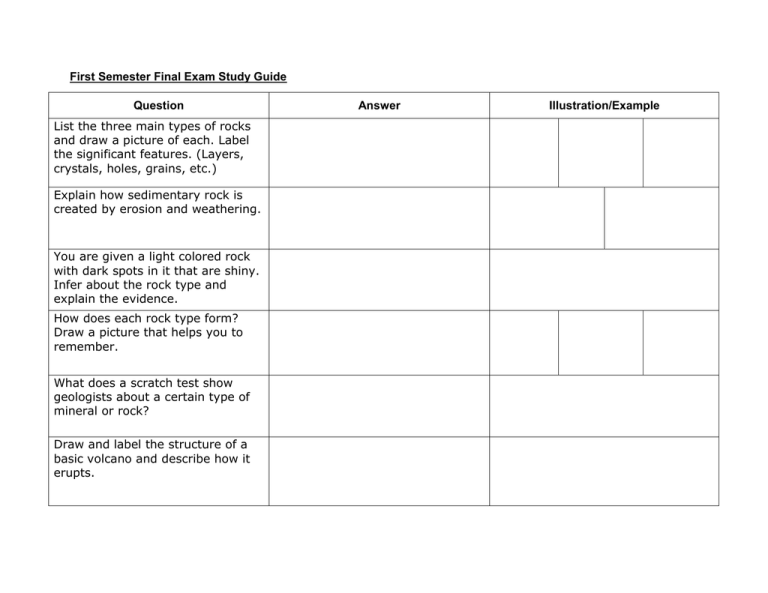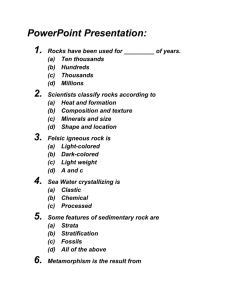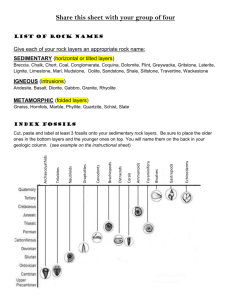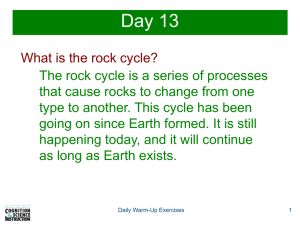First Semester Final Exam Study Guide Question Answer Illustration
advertisement

First Semester Final Exam Study Guide Question List the three main types of rocks and draw a picture of each. Label the significant features. (Layers, crystals, holes, grains, etc.) Explain how sedimentary rock is created by erosion and weathering. You are given a light colored rock with dark spots in it that are shiny. Infer about the rock type and explain the evidence. How does each rock type form? Draw a picture that helps you to remember. What does a scratch test show geologists about a certain type of mineral or rock? Draw and label the structure of a basic volcano and describe how it erupts. Answer Illustration/Example Question What is Mohs’ Scale used to determine? What rock type is pictured? How do you know? Explain the difference between weathering and erosion. What is it called when minerals are moved from one place to another resulting in layers? List the properties that help identify rock types. What are the three volcano types and what are they made of? Answer Illustration/Example Question Answer Draw and label the rock cycle and explain how it works. Explain how igneous rocks are created and then changed into sedimentary rocks. Which type of rock cannot have fossils? Why? Use the geologic column below to answer questions 1-4. 1. Which rock layer is the oldest? 2. Which rock layer is the newest? 3. How do you know which layers are younger? 4. Is layer C older or newer than layer F? Why? What is a fossil? How are fossils made? - Illustration/Example Question What are index fossils and how can they be used to date rock layers? Explain what seismic waves are, name the three types, and which is the most destructive. What is the evidence for the theory of continental drift? Name the three types of plate boundaries, explain their movement, and give one result of each. What causes an earthquake? What are mid-ocean ridges and what type of boundary occurs there? Answer Illustration/Example Question Answer What is a hot spot? Give two examples of places fueled by hot spots. On Mohs’ scale of hardness, what are the softest and hardest minerals? What is the movement of the plates caused by? After you have completed an experiment and you find that your hypothesis is incorrect, what should be done next? What is the mass measurement for the object on the triple beam balance above? Why are safety rules important in the lab? Illustration/Example Question When is it okay to begin using materials in the lab? What is a graduated cylinder used to measure and what label should be used for objects that it measures? What is the measurement of the liquid? What is a meniscus? How do you measure using the meniscus? About how old is the earth? What evidence do scientists have to support this? What are the divisions of geologic time? What happens at the end of each era? Describe intrusive and extrusive igneous rocks and explain the difference between them. Answer Illustration/Example


